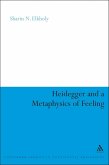Zizek and Heidegger offers a radical new interpretation of the work of Slavoj Zizek, one of the world's leading contemporary thinkers, through a study of his relationship with the work of Martin Heidegger. Thomas Brockelman argues that Zizek's oeuvre is largely a response to Heidegger's philosophy of finitude, an immanent critique of it which pulls it in the direction of revolutionary praxis. Brockelman also finds limitations in Zizek's relationship with Heidegger, specifically in his ambivalence about Heidegger's techno-phobia. Brockelman's critique of Zizek departs from this ambivalence - a fundamental tension in Zizek's work between a historicist critical theory of techno-capitalism and an anti-historicist theory of revolutionary change. In addition to clarifying what Zizek has to say about our world and about the possibility of radical change in it, Zizek and Heidegger explores the various ways in which this split at the center of his thought appears within it - in Zizek's views on history or on the relationship between the revolutionary leader and the proletariat or between the analyst and the analysand.
Bitte wählen Sie Ihr Anliegen aus.
Rechnungen
Retourenschein anfordern
Bestellstatus
Storno









